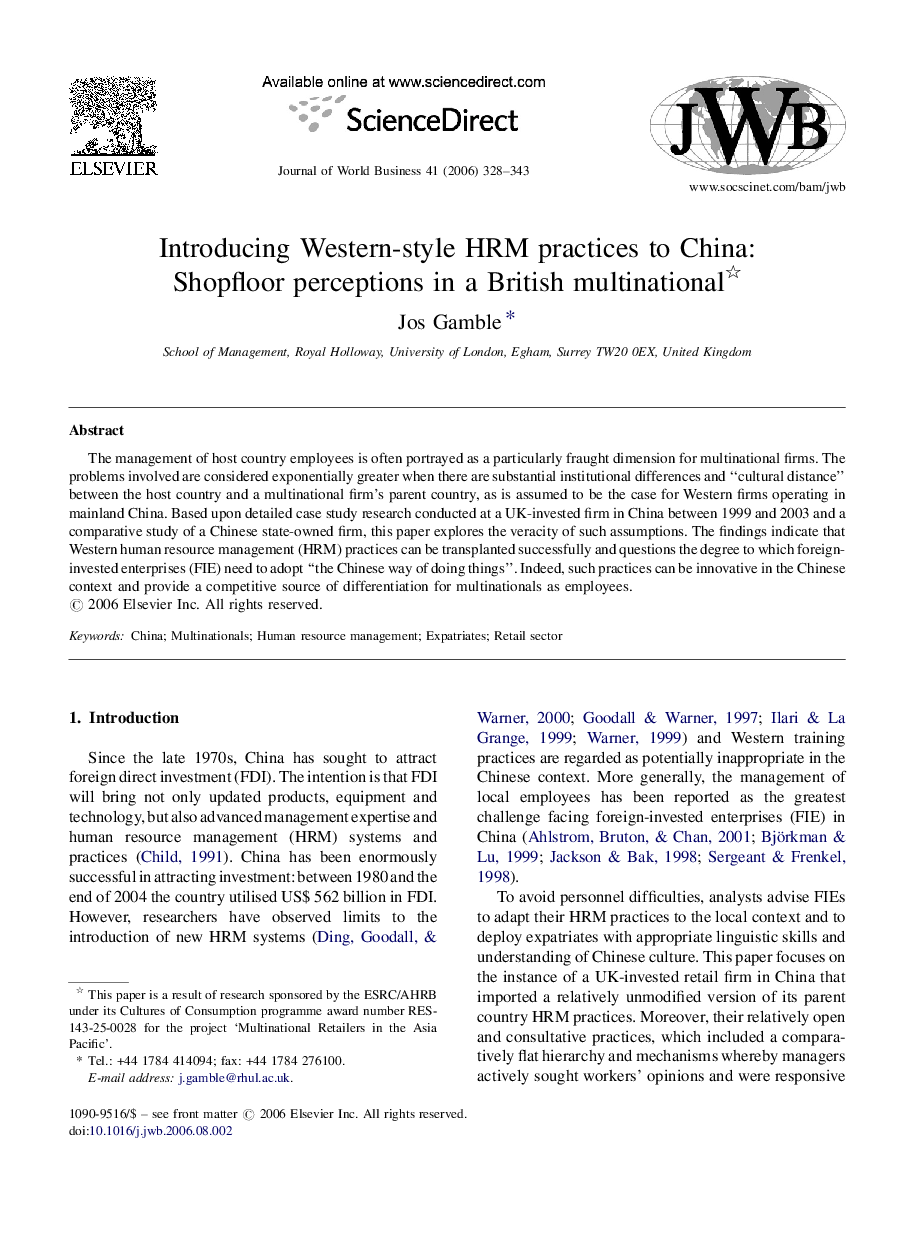| Article ID | Journal | Published Year | Pages | File Type |
|---|---|---|---|---|
| 1001770 | Journal of World Business | 2006 | 16 Pages |
The management of host country employees is often portrayed as a particularly fraught dimension for multinational firms. The problems involved are considered exponentially greater when there are substantial institutional differences and “cultural distance” between the host country and a multinational firm's parent country, as is assumed to be the case for Western firms operating in mainland China. Based upon detailed case study research conducted at a UK-invested firm in China between 1999 and 2003 and a comparative study of a Chinese state-owned firm, this paper explores the veracity of such assumptions. The findings indicate that Western human resource management (HRM) practices can be transplanted successfully and questions the degree to which foreign-invested enterprises (FIE) need to adopt “the Chinese way of doing things”. Indeed, such practices can be innovative in the Chinese context and provide a competitive source of differentiation for multinationals as employees.
